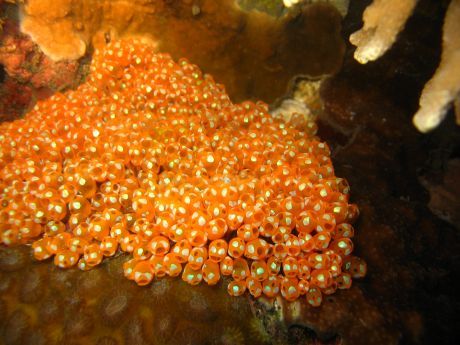News
You are here
Invasion of the sea squirts

August 24, 2013
The Maritime mussel aquaculture industry is in crisis. Some mussel farmers have seen production cut by up to 90 percent due to an infestation of sea squirts. At least five species of sea squirts – three of which are invasive – are over running mussel farms. The Aquaculture Association of Nova Scotia says they have “probably lost about 50 percent of the industry at this point”.
Sea squirts, also known as tunicates, are filter feeders that attach to rocks or other suitable surfaces on the sea floor. Although each individual is only a few millimeters long, they grow in colonies that can spread over large area. Recently they have attached to the ropes hanging for the mussels to grow on, and to the mussels themselves. They arrived in East Coast waters attached to boats and fishing gear, or in the ballast water of ships.
Those sea squirts attached to the mussels themselves take away nutrients so the mussels are unable to grow. Or, the weight of the sea squirt colonies pulls the mussels from the ropes. Either way, the mussels are lost.
According to DFO, sea squirts have been present since around 1900, but it is only within the past 10 years that they have been multiplying and creating the colonies affecting the aquaculture industry. Once a sea squirt population has taken root in an area, it is nearly impossible to eradicate. At first, mussel farmers could remove sea squirts from the ropes and mussels, but populations have grown too big. It is now too difficult and expensive a problem to deal with.
There are a few reasons why sea squirts are so successful: they can withstand many different environmental conditions, they have few known predators, and they are very prolific: single sea squirt can produce 10,000 offspring.
Possibly the most worrying reason for the recent proliferation of sea squirts comes from the Bedford Institute of Oceanography, which has been monitoring ocean temperatures and sea squirts since 2006. Their data shows that the sea water no longer is as cold in winter as it used to be, with spring temperatures two to three degrees higher than it was six years ago. Where the sea squirt populations once used to die off in the winter, the cold water mitigating growth, this is no longer the case.
If air and sea temperatures continue to increase as they have, more situations like this will be seen worldwide. Climate change is destined to have serious effects on the security of our food supply, from both the land and the sea.
Section:
Topics:










